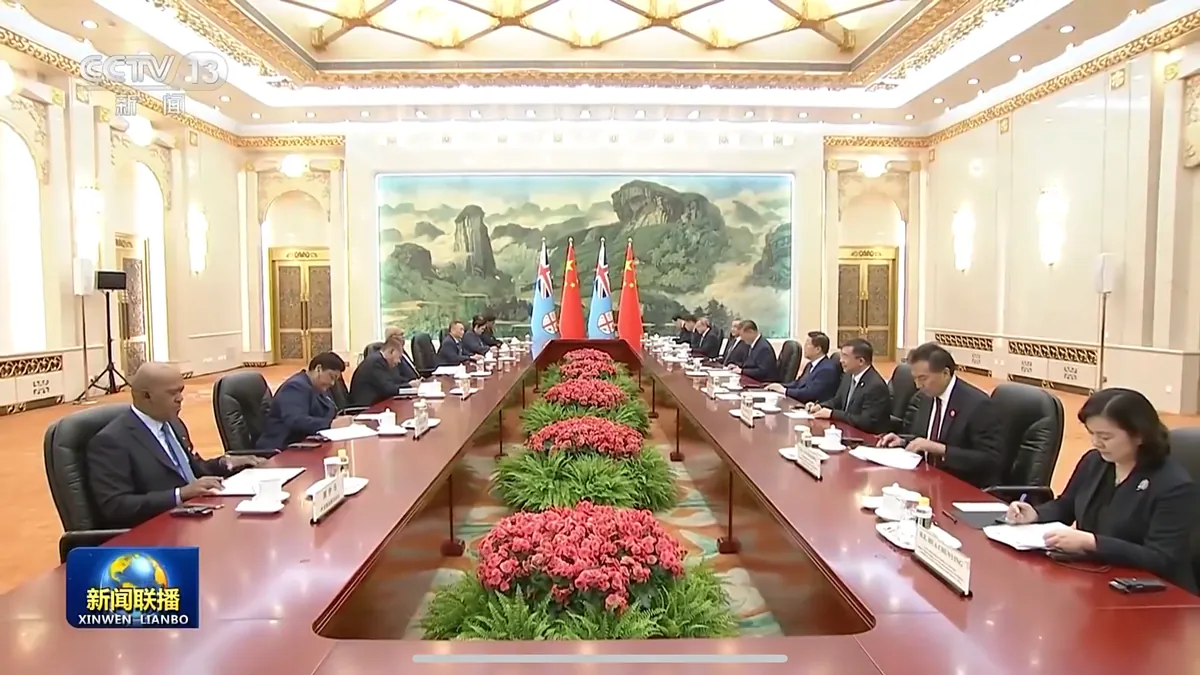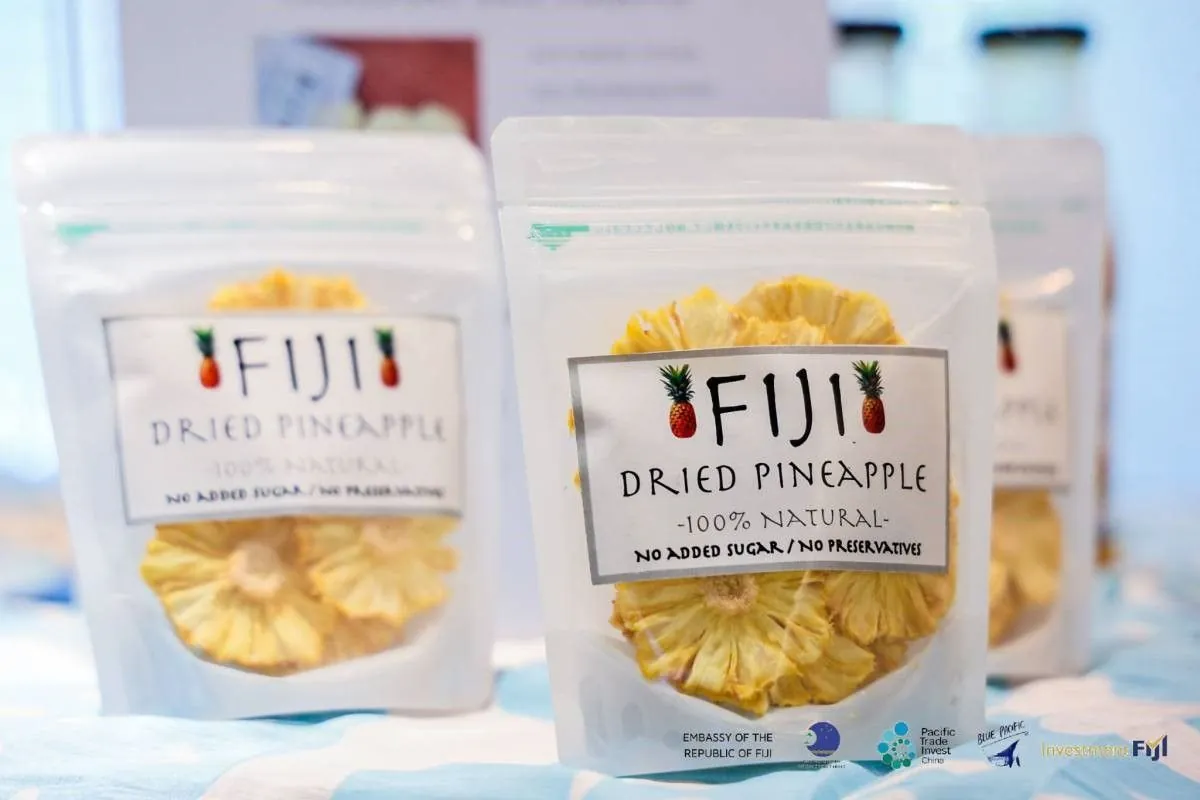Fiji's PM Gains China's Support for "Ocean of Peace" Plan
Chinese President Xi Jinping backs Fijian Prime Minister Rabuka's regional peace initiative. China pledges increased trade ties with Fiji ahead of Pacific Island leaders summit in Tonga.

In a significant diplomatic development, Sitiveni Rabuka, the Prime Minister of Fiji, secured support from Xi Jinping, the President of China, for his "Ocean of Peace" initiative during a meeting in Beijing on August 21, 2024. This encounter occurred just days before a crucial summit of Pacific Island leaders in Tonga.
The meeting highlighted China's commitment to enhancing trade relations with Fiji, an archipelagic nation seeking to upgrade its infrastructure. Fiji's economic priorities include improving ports, shipbuilding facilities, roads, and sewage systems. However, the country's ability to fund these projects is constrained by its substantial debt, necessitating better terms for its agricultural and fisheries exports.
Xi Jinping expressed appreciation for Rabuka's vision, stating China's willingness to collaborate with Fiji in contributing to international peace and security. In response, Rabuka acknowledged the alignment between China's principles and his concept of the "Ocean of Peace."

Fiji, an island nation comprising over 330 islands with about 110 permanently inhabited, faces unique challenges and opportunities. The country's economy heavily relies on tourism and agriculture, with main exports including sugar, garments, gold, timber, fish, molasses, and coconut oil. Fiji's strategic importance to China is underscored by its location at the southern end of the "second island chain," an area of naval interest for Beijing.
China has pledged to invest in Fiji's tourism, agriculture, and fisheries sectors, as well as support a road upgrading project on the country's second-largest island. This commitment comes despite the generally poor return on investment offered by Pacific Island states.
The upcoming Pacific Island leaders summit in Tonga, scheduled for the week of August 26, 2024, will consider a regional policing proposal backed by Australia. Rabuka, who returned to the role of prime minister in 2022, has indicated he would not disrupt regional security arrangements in the Pacific, where China and the United States are vying for influence.
Fiji's foreign policy has seen shifts in recent years. In June 2024, Rabuka announced a "police force reset," moving away from a policing agreement with China established a decade earlier and opting to work more closely with Australia. This change reflects Fiji's evolving stance in the complex geopolitical landscape of the Pacific region.
"I am very much encouraged by your principles, your ideas on peaceful coexistence, on the principles of progress. They are in line with what I have in mind for the concept of the Ocean of Peace."
It's worth noting that Fiji owes China, the world's largest bilateral lender, slightly over $218 million according to World Bank data. Since his election victory in 2022, Rabuka has increasingly turned to Australia for additional aid donations.
As a country actively involved in UN peacekeeping missions since 1978 and the first to ratify the Paris Agreement on climate change in 2016, Fiji continues to play a significant role in regional and global affairs. The nation's efforts to develop its renewable energy sector, particularly in solar and hydropower, demonstrate its commitment to addressing climate change challenges that threaten its coastal areas.


































